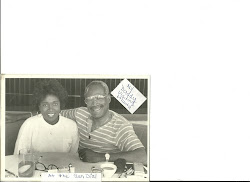My reaction to the topic Sexualization of early childhood
was shock. I was shocked at the
incidents that occurred with young children.
I am aware of the sexualized culture or society we live in. The media uses sex to sell their products
with no care of who views their commercials and magazines. Children growing up today are bombarded from
a very early age with graphic messages about sex and sexiness in the media and
popular culture (Levin & Kilbourne, 2009).
I have witnessed some incidents that involved children, but I blamed the
parents for their children’s behavior. I
have learned that it is not necessarily the parents fault, but the commercials
and media are to blame.
During dramatic play a little 2 1/2 year old girl named
Taylor put on a princess dress and said I sexy.
She did not say she was pretty or beautiful, but said she was sexy as
she put her hand on her hips and walked around the classroom. There was another incident that involved two
little girls both 2 years old; they both stuck their tongues out and began to
tongue kiss while moving their heads around as two adults might do. At the center I used to teach there was a
little girl named Jaylin at nap time she would hump the mat before falling
asleep.
The messages that children are witnessing in the media in my
opinion are harmful to their perspectives of relationships. After watching much of what the media
provides today someone might think that a relationship is only sexual and might
cause children to feel that they must be sexually attractive to be in a
relationship. They do not see caring and
warmth and respect in relationships on TV, in movies and in commercials. This could be devastating to their development
and self- image. As an early childhood
professional what I would do to respond to young children’s negative behavior
would be to communicate with them. I
would find out where they learned the inappropriate behavior and discuss it
with them. I would try to explain what
they saw and share with them alternative behaviors.
What I learned from this topic is how damaging the media and
popular culture can be to young children’s self-image. I also learned that much of what children
absorb about sexuality does come from the media whether it be commercials or
magazines and not their parents. I
mistakenly thought that the inappropriate behavior some children exhibit was
because their parents were inappropriate in front of them, but that does not
seem to be the case.
Reference:
Levin, D. E., & Kilbourne, J. (2009). [Introduction]. So
sexy so soon: The new sexualized childhood and what parents can do to protect
their kids (pp. 1-8). New York: Ballantine Books.
